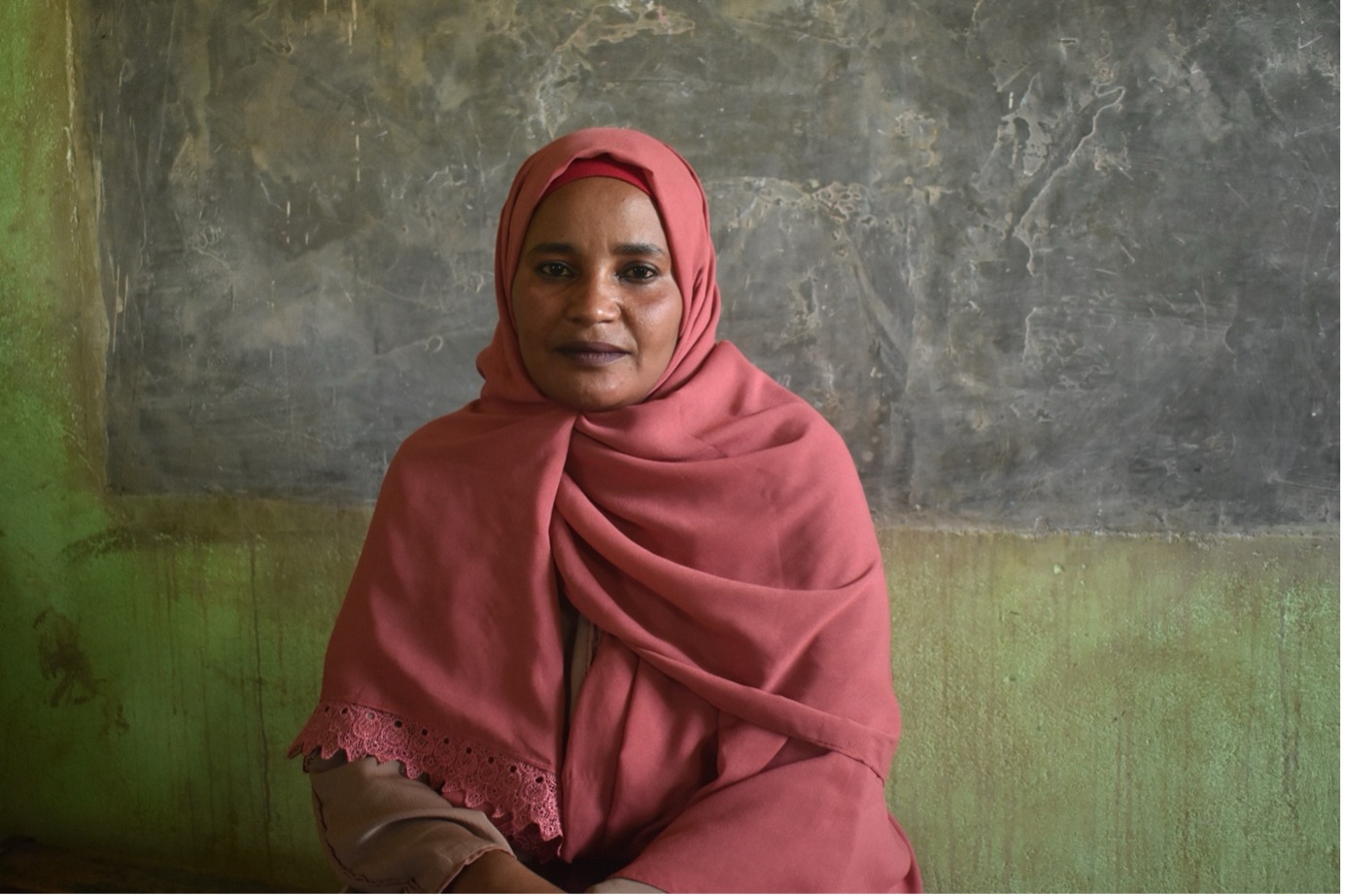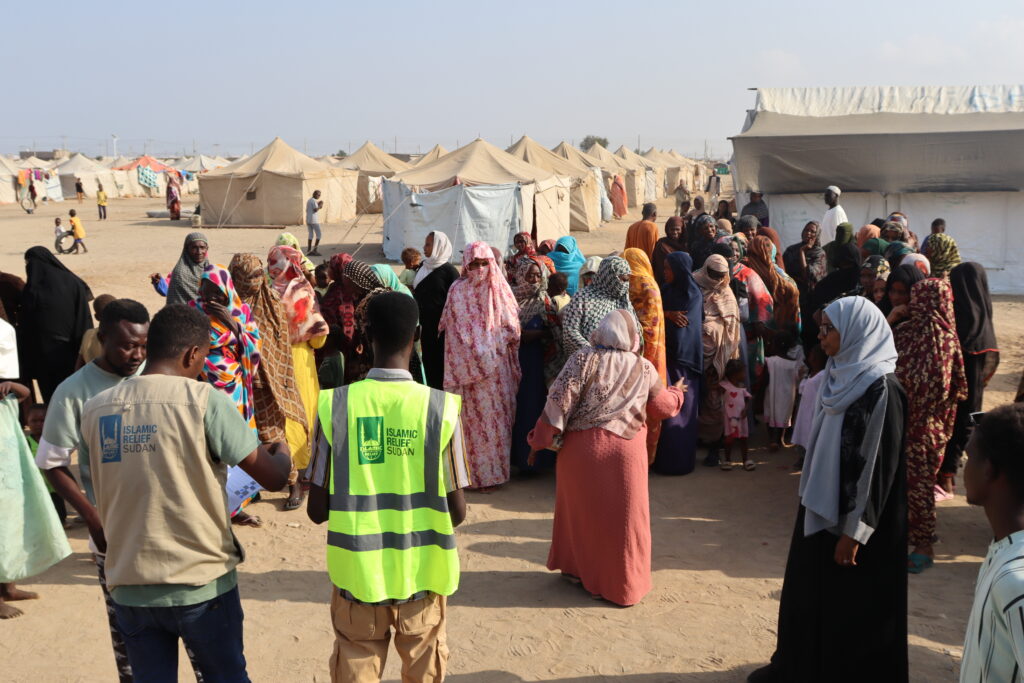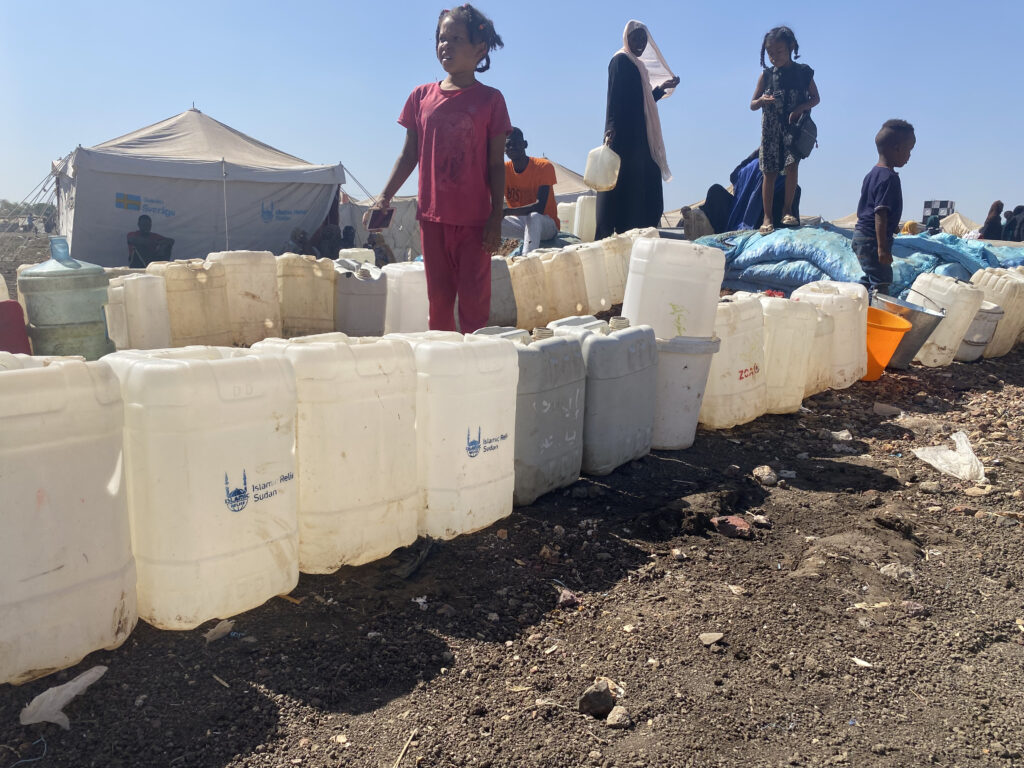
Gadarif state was once a quiet agricultural region. Now, it is a reluctant refuge for thousands of families fleeing Sudan’s spiralling conflict.
Among them is mother-of-5 Rayan, whose life has been reduced to a daily struggle for the most basic necessities: food, shelter and safety.
Her story is a snapshot of the global refugee crisis, one that forces us to confront the human cost of displacement, not as a distant tragedy, but as a relentless reality for millions.
The night everything changed
Rayan’s family once had a home in Khartoum, a modest but stable life. Her husband ran a small business, and her children went to school. “It was not luxury,” she recalls, “but it was ours.”
That changed overnight when fighting reached their neighbourhood last year. With bullets flying and shops ablaze, the family abandoned everything they had known. Joining the endless stream of displaced individuals searching for safety, they drove first to Singa in the Blue Nile region and then on to Gadarif after renewed clashes.
“We left with nothing,” she says. “No money, no belongings, no papers, just the clothes we were wearing.”

Today, the family of 7 live crammed into a host family’s compound. Plastic sheeting covers gaps in the walls; a single jerry can stand in place of household furniture.
Rayan’s husband searches the market each dawn for day labour. On good days, he earns approximately £2.50 (RM14) loading grain sacks and stacking produce carts. On the many bad days, he returns empty‑handed.
The world’s largest displacement crisis
The speed of displacement in Sudan has been staggering: the United Nations estimates that over 11 million Sudanese are now uprooted, the largest internal displacement crisis on record.
Yet Sudan is only one fault‑line in a global pattern. Worldwide, 122.6 million people – three‑quarters of them women and children – live in limbo after fleeing conflict, persecution and disaster.
Displacement triggers a chain reaction of suffering. Children drop out of school, families sell all they have, and illness spreads where healthcare is scarce.

In Gadarif, the hot nights lead to increased health risks for displaced families, including young children who are particularly vulnerable to malaria. Rayan’s 2 -year-old daughter has already fallen ill.
For adolescent girls, the crisis brings an additional layer of anxiety. Sanitary pads are expensive luxuries, and makeshift alternatives raise health risks and keep girls indoors.
Islamic Relief delivers lifesaving aid
Islamic Relief distributed aid to Rayan’s neighbourhood supported by the Humanitarian Emergency Fund (HEF). Each household received a dignity kit, which included 2 mosquito nets, sanitary pads, toothbrushes, soap, blankets and headscarves, plus a cash grant.
“The mosquito net was a small thing that gave us much peace,” Rayan says. Her youngest now sleeps through the night. The cash covered a month’s rent and also stretched to cooking oil and lentils. “For the first time in many weeks,” she adds, “I bought meat.”
Islamic Relief colleagues in Sudan emphasise that cash restores choice and dignity. “It allows families to decide what they need most,” explains Adam Yagoub, Islamic Relief Sudan’s communication officer. “Some buy food, some pay medical bills, some save a little for the journey home, when return is possible.”
A fair chance at survival
Sudan’s conflict shows no sign of abating; humanitarian corridors remain volatile, and funding gaps widen as new crises compete for attention. Islamic Relief’s latest Sudan appeal is only 42% funded.
Rayan understands these numbers translate into rationed assistance. “We do not expect comfort,” she says, “just a fair chance.”
Her wish list is simple: regular food parcels, safe shelter, mosquito spraying across the settlement, and, above all, peace so her children can return to school.
Donate to our International Emergency now to help families like Rayan’s survive with dignity.



